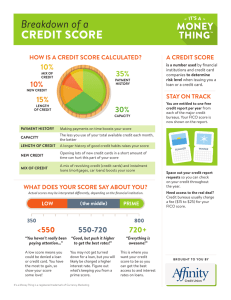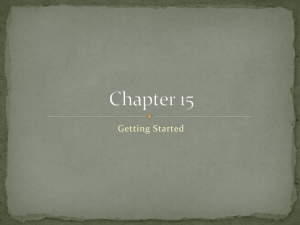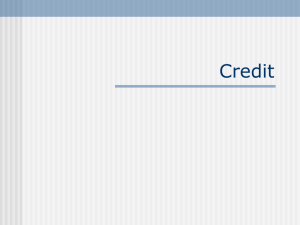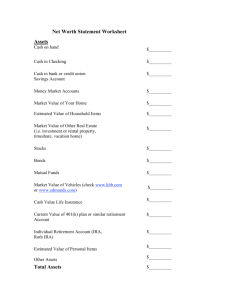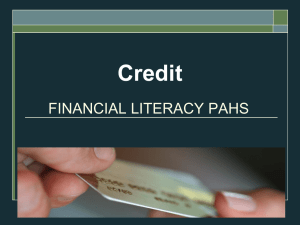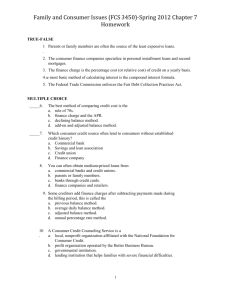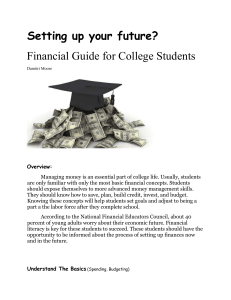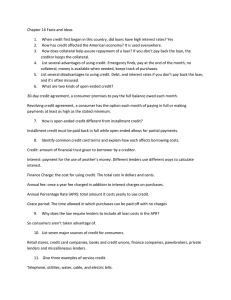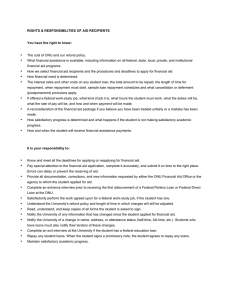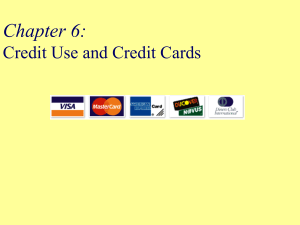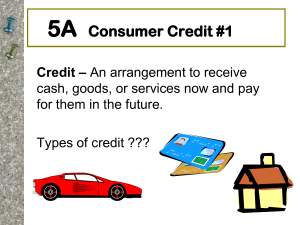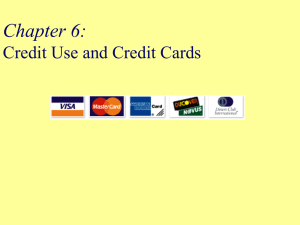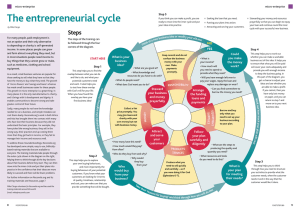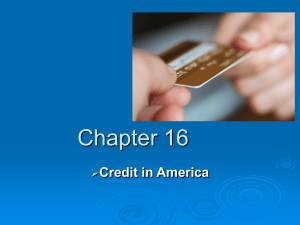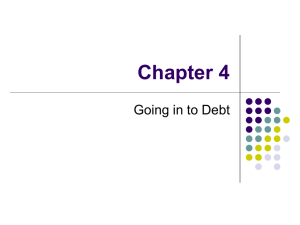Chapter 16.1
advertisement
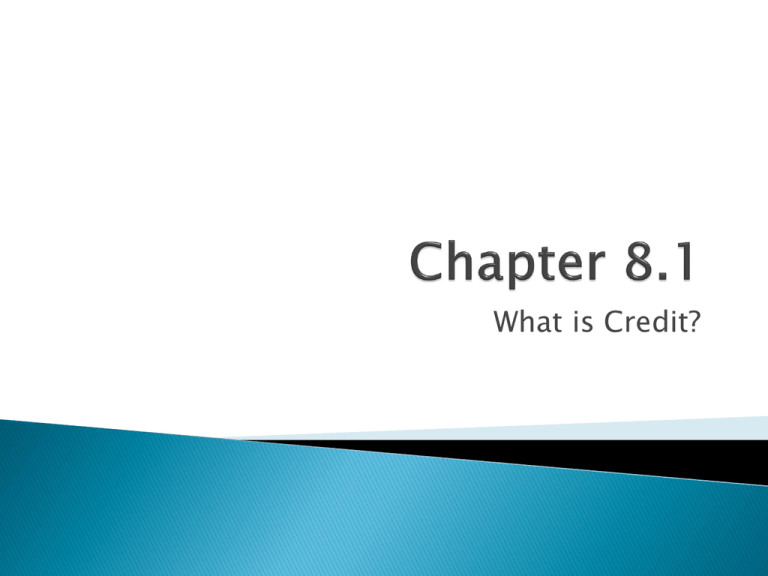
What is Credit? Credit is an arrangement to receive cash, goods, or services now and pay for them in the future. Borrowing money or using a credit card is ‘using’ credit. Consumer credit is the use of credit for personal needs. Most common form = credit card account Consumer spending and demand indicator An entity that lends you your money is a creditor. Examples: financial institution, merchant, or individual Good credit is valuable!! What are some reasons for using credit? When might it be inappropriate to use credit? Record answers in your notes Giving or receiving money is the act of finance. Before using credit, consider: Do you want to use your savings instead of credit? Can you afford the item? Could you put off buying the item for a while? What are the costs of using credit? You are also agreeing to pay the fee that the creditor adds on to your purchase. Example: If you do not pay your credit card bill in full every month, you are charged interest on the amount you have not paid. Enjoy goods and services now and pay for them later Combine several purchases, making one monthly payment Record of expenses and safe than carrying cash If used wisely, other creditors view you as responsible Temptation to buy more than you can afford Risk of losing your good credit reputation. Risk of losing income and property to repay your debts If your income doesn’t increase, may have difficulty paying bills 1. Closed-end credit 2. Open-end credit One-time loan, paid back over a specified period of time in payments of equal amounts. Involves an agreement, or contract. Examples: Vehicle loans (title), large appliances, furniture Three most common types: Installment sales credit – high priced merchandise (large appliances, furniture, etc), usually a down payment is required Installment cash credit – direct loan for personal money (home improvements, vacation, etc.), no down payment Single lump-sum credit – must be repaid in full on a specified day, usually 30 to 90 days. Credit as a loan with a limit on the amount of money you can borrow for a variety of goods and services Line of credit = maximum amount of money allowed Examples: Visa, MasterCard, Department Stores Billed for at least a partial payment of the total amount you owe May have to pay interest or other finance charges STOP Chapter 8.1 Borrowed money with an agreement to repay it with interest within a certain amount of time. Inexpensive Loans: Low interest Family or parents Medium-Priced Loans: Moderate interest Savings and Loan Associations, Commercial Banks, Credit Unions Expensive Loans: High interest Finance companies, retail stores Home Equity Loans: Based on your home equity Difference between the current market value of your home and amount your still owe on the mortgage Interest is tax-deductible Missing payments = possible loss of home Average cardholder has more than nine credit cards. Grace period – time period during which no finance charges will be added A finance charge is the dollar amount you pay to use credit. Pay in full and on time = no finance charge Includes late payment fees, interest, and annual fee. Debit Cards: Electronically subtracts money from your savings or checking account to pay for goods/services. Some can be used as credit and delays automatically subtracting from your account Cobranding: Linking a credit card with a business trade name offering “points” or “premiums” Increasingly popular Offers cash rebates on specified products/services Smart Cards: Contains a computer chip and stores 500 times as much data as a normal credit card. Example: Purchase a plane ticket, store it digitally, and track frequent flyer miles Figure 2 Summarizes the major sources of consumer credit. Which credit source would you use for the following loans and why: Mortgage Vehicle Loan Your first credit card Record answers in your notes Page 233 #1-4, 6 (one or two sentences) ◦ Turn in when complete Mini-QUIZ TOMORROW on Ch.8.1 Homework: Research two colleges of interest to you and locate the tuition for the Fall 2013 Semester. Include on a piece of paper your name, each college, and the tuition. ◦ DUE FRIDAY

